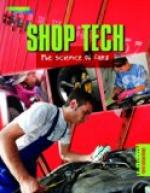|
This section contains 1,063 words (approx. 4 pages at 300 words per page) |

|
Science shops provide independent, participatory research support in response to concerns experienced by civil society (Gnaiger and Martin 2001). Science in this context refers to all organized investigation, including the social and human sciences and arts, as well as the natural, physical, engineering, and technological sciences.
The concept of science shops was developed by students at universities in the Netherlands during the 1970s. This development was assisted by faculty and staff seeking to democratize the disciplinary hierarchies of the traditional university system. But arguably science shops are a manifestation of a movement stemming at least as far back as Thomas Jefferson's defense of the principle that "ideas should freely spread from one to another over the globe" (Jefferson 1813, Internet page).
The science shop concept spread worldwide in two waves. The first, in the late-1970s and early-1980s, was triggered by articles in Nature (Ades 1979) and Science...
|
This section contains 1,063 words (approx. 4 pages at 300 words per page) |

|


